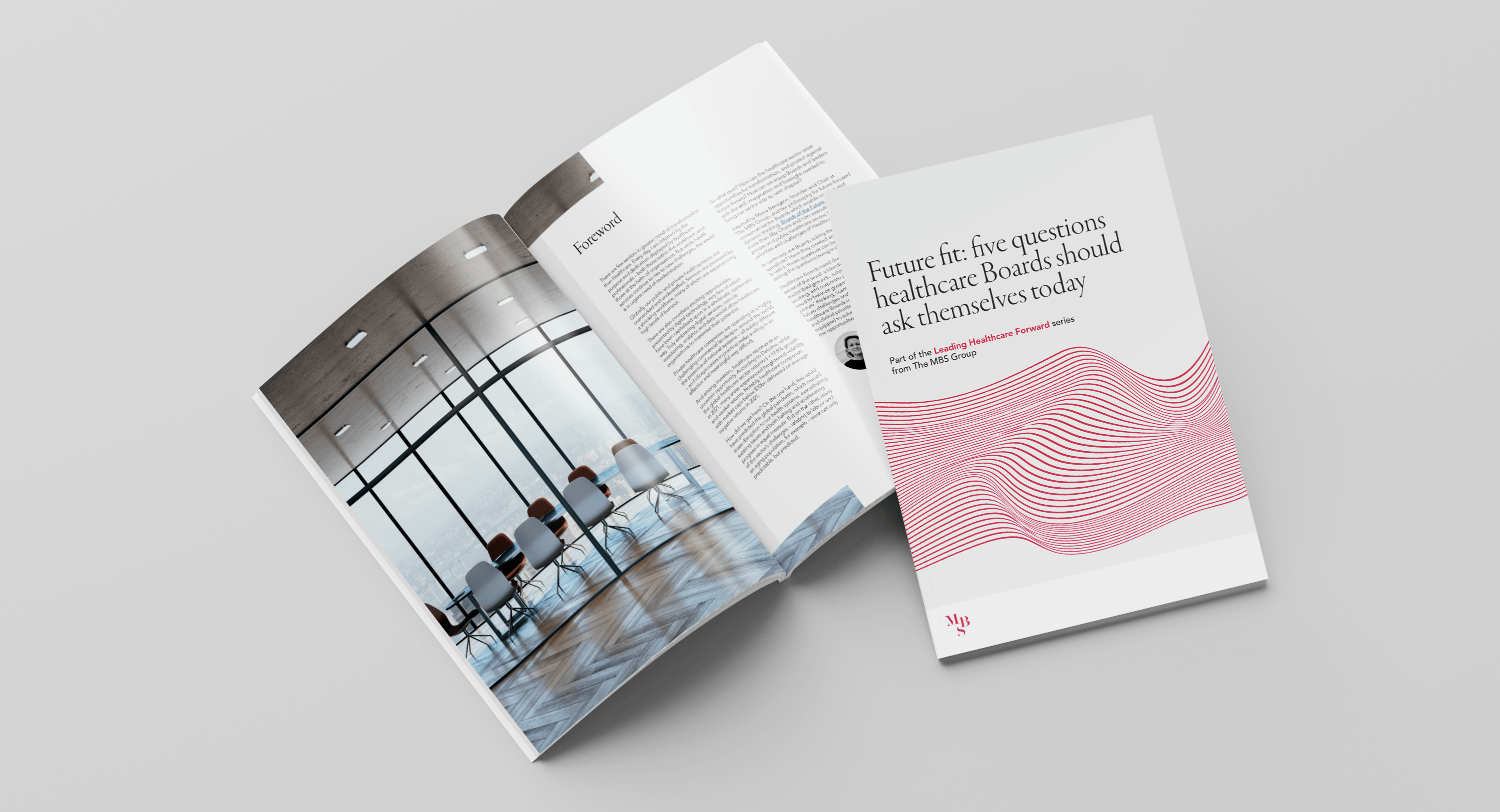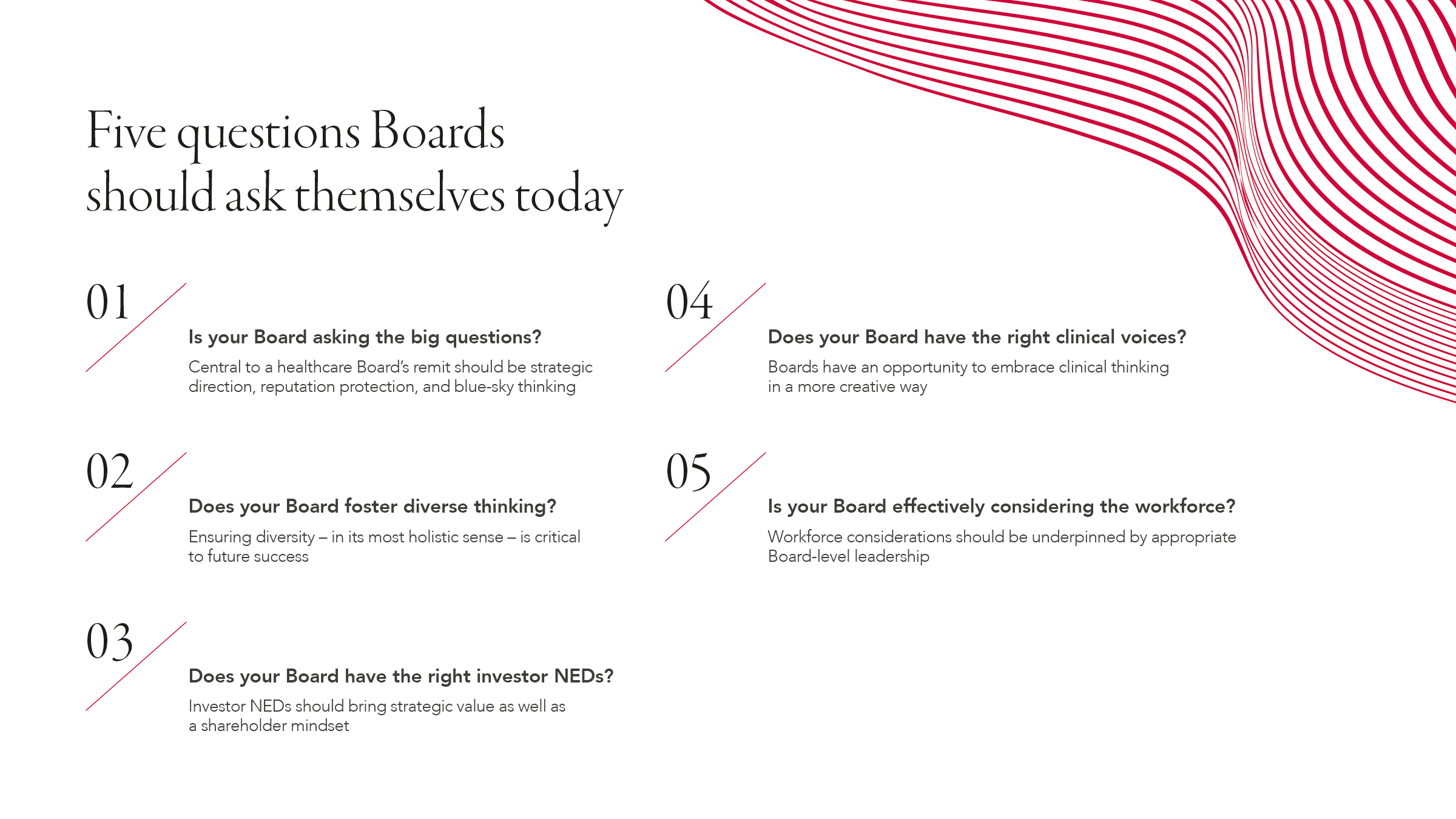I’ve been advising organisations in the healthcare sector for more than a decade now, and have always been inspired by the purpose and dedication on display in the sector, from those within the workforce and those at the helm. Today, healthcare is a vibrant, exciting, and challenging industry – but it is in urgent need of modernisation, and in grave danger of not fulfilling its potential.
Globally, our public and private health systems are overworked and understaffed. Services are powered by a shrinking workforce, many of whom are experiencing high levels of burnout. There are countless exciting opportunities presented by digital technology and wider innovation, very few of which have been capitalised upon in a wholesale, systematic way. Among investors, meanwhile, healthcare represents an uncertain opportunity – tantalising in its potential, but often not quite delivering.
How did we get here? On the one hand, few could have predicted the global pandemic, which caused mass disruption to our health systems, and has now created huge operating pressures in its aftermath. But the pandemic also accelerated change in services, forcing the introduction of new ways of working and demonstrating how quickly change could, in fact, be delivered. Many of the sector’s broader challenges meanwhile, around labour shortages and an aging population, for example, were both predictable and in fact predicted.

So what next? How can healthcare businesses spot and seize opportunities for transformation, and protect against future threats? How can we equip Boards and leaders with the skill, imagination and foresight needed to bring our sector into its next chapter?
I’ve spent time over the last year reflecting on these ideas, and today I’m thrilled to present the first in a series of Healthcare-focused white papers. Future fit: Five questions healthcare Boards should ask themselves today is inspired by my colleague Moira’s brilliant manifesto for successful Boards, Boards of the Future.
This publication is based on conversations with more than fifty Chairs and NEDs from across European healthcare, albeit with something of a UK bias. It has been such a privilege to sit down with them all individually, and to share ideas about the opportunities we have as a sector to rethink the role and composition of the Board.
This white paper details my philosophy, and asks five critical questions of Healthcare Boards today:
1. Is your Board asking the big questions?
2. Does your Board foster diverse thinking?
3. Does your Board have the right investor NEDs?
4. Does your Board have the right clinical voices?
5. Is your Board effectively considering the workforce?
Central to my thinking is this first question. Healthcare Boards should be balancing governance and oversight with ‘big picture’ conversations, scanning the horizon to identify future challenges and opportunities. Topics like outsourcing, zero-hour contracts, labour, diversity, the role of technology, and sustainability are treated as public-interest issues in healthcare in a way they aren’t in other sectors. If organisations fail to ask the right questions, they are missing opportunities and potential threats – and risk falling out of favour with patients and customers, whose demands of healthcare are growing, and in whose hands healthcare businesses’ reputations sit.

Indeed, we’ve already seen this happen. Many will remember the period in June 2020, when it was found that mortality rates from Covid-19 were higher among those from a Black or minority ethnic background, a trend that was more pronounced among healthcare workers.
Going into the pandemic, too many healthcare organisations lacked a detailed understanding of the ethnic make-up of their employee base, and the lived experiences of different ethnic groups in their workforces. Had more Boards been aware of this – had they made it a priority to more deeply understand their workforce and its diversity ahead of the crisis – the healthcare sector would have been better equipped to anticipate and mitigate some of those risks, and better equipped to deal with the response.
Linked to this risk of an overly narrow focus is the need to ensure diversity on the Board, in the most holistic sense of the word. Representation of different genders, cultural groups and physical and cognitive abilities is critically important – but so is blending different life experiences, sector backgrounds, subject expertise, ways of working, and corporate priorities. The Board environment should enable full discussion of possibilities, welcome rogue ideas, and encourage directors to speak up with an unvoiced fear or question.
“The Board environment should enable full discussion of possibilities, welcome rogue ideas, and encourage directors to speak up with an unvoiced fear or question.”
Applying a digital lens to problem solving is a necessary requirement for all Boards today. Too few healthcare Boards are thinking creatively about how to harness technology like data, AI and automation to maximise efficiency and drive progress, while maintaining safety and security – and Chairs must consider how to bring in a breadth of digital expertise and savvy, whilst ensuring innovation remains integral to the entire board, not siloed to one individual.

I’m very excited about the next chapter of the healthcare sector. With the right challenge and guidance, imagination and appraisal of possibility, opportunities abound for healthcare businesses to really modernise, to thrive, to grow, and to answer some of our most pressing societal problems. In doing so, they will better treat their patients, serve their customers, and bring returns for their investors.
This challenge and guidance must come from the Board. With the right voices around the table, and the Board team managed in an inclusive, aligned and strategic way, well-functioning Boards with creative flair and a progressive eye can have a transformational impact on their businesses and on the sector.
I hope that this publication, which you can read here, will inspire Chairs, Boards and executive leaders to think differently about the non-executive Board, and serve as a catalyst for action among those leaders who already share my vision. This is an ever-evolving conversation, and I’d love to hear your views.








